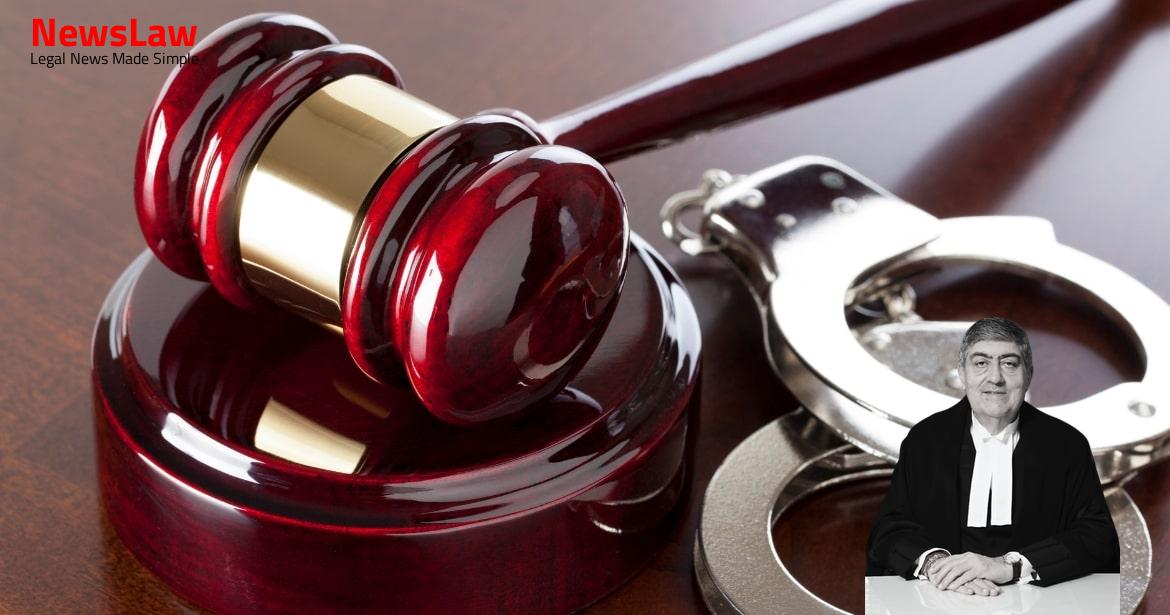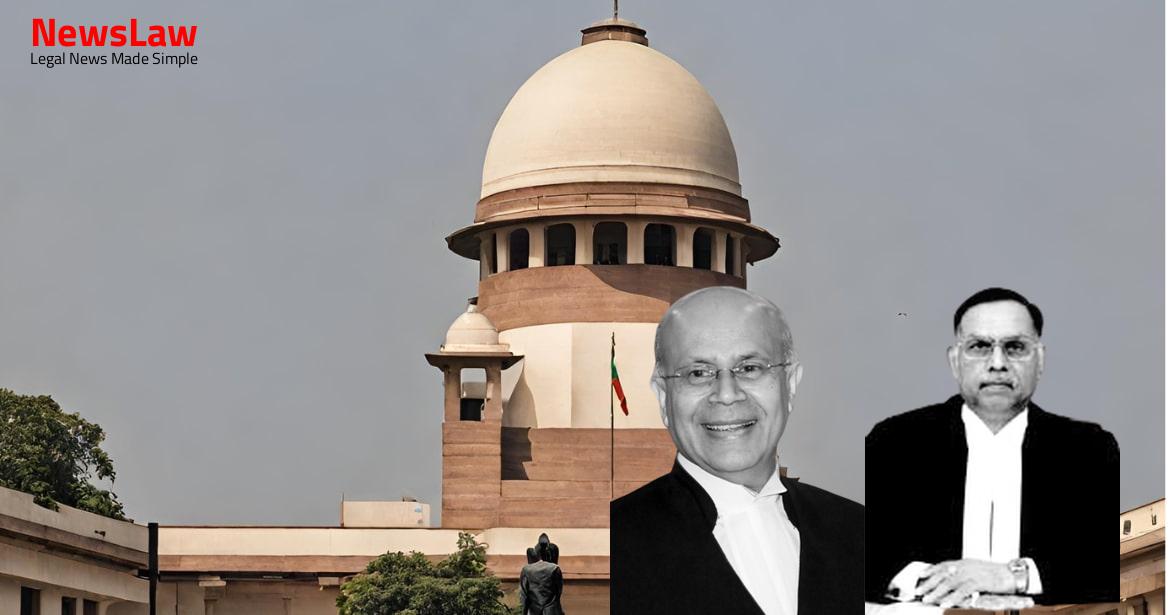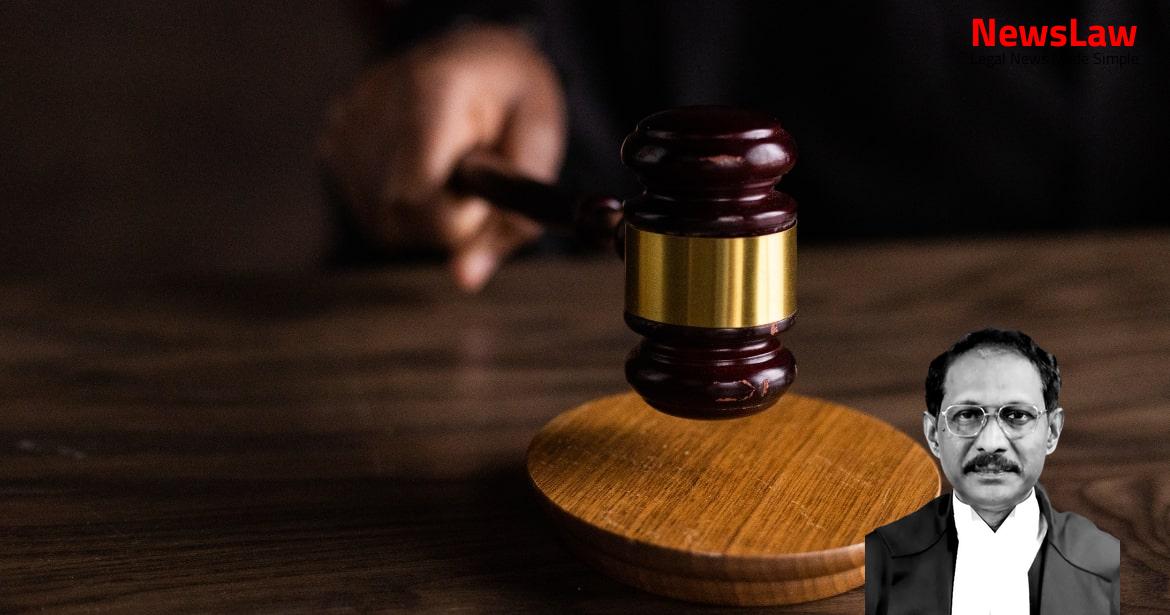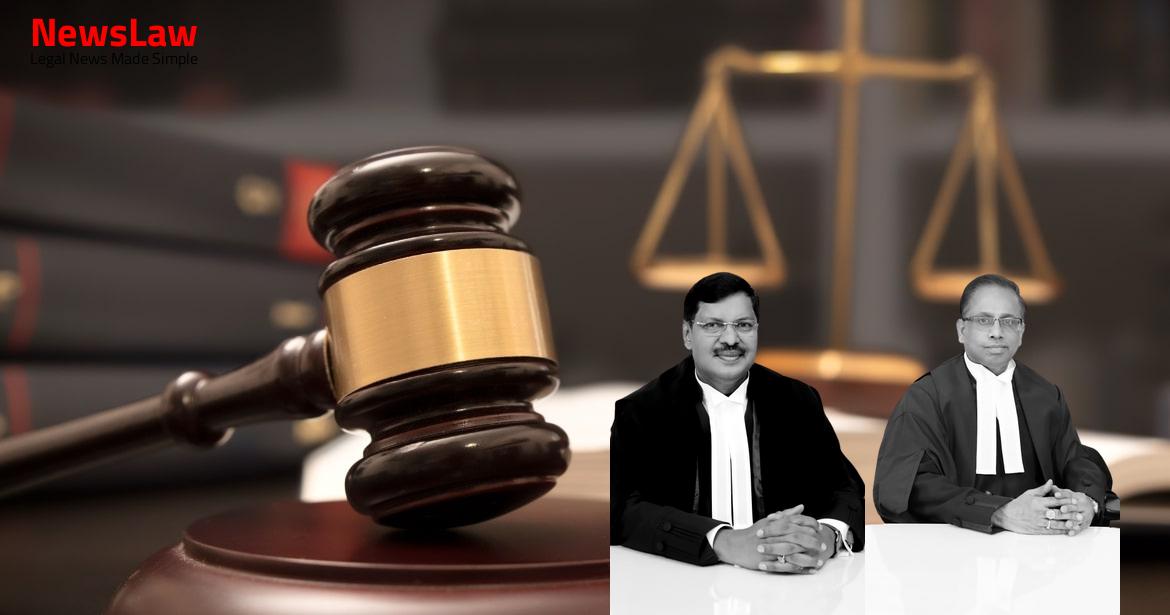Delve into the intricate legal analysis surrounding the issue of contempt of court and the crucial role of maintaining judicial dignity. The case delves into the court’s steadfast stance against contumacious behavior and the significance of upholding the majesty of law in the face of deliberate attempts to undermine justice.
Facts
- Mr. Daiya sought adjournment multiple times to enable response by the Chief Justice of India to his letters.
- He claimed to have insufficient funds to make payment of the costs imposed by the court.
- Mr. Daiya continued with contumacious conduct, attempting to scandalize the court and evade consequences.
- He sought to excuse himself from court appearances citing Covishield vaccination and avoidance of costs.
- All applications and writ petitions filed by the Trust and Mr. Daiya were directed to be dismissed for non-payment of costs.
- Mr. Daiya failed to deposit the costs with the Supreme Court AOR Welfare Trust, despite reminders.
- He made various allegations and pleas in an attempt to evade the recovery of costs imposed by the court.
- Mr. Daiya addressed letters to the Assistant Registrar and the Attorney General, seeking to initiate contempt proceedings against court officials.
- He made contradictory statements about his employment status and assets, leading to the court issuing notices and warrants against him.
- Despite multiple opportunities, Mr. Daiya continued to resist complying with court orders and regulations.
- The court issued notices and warnings to Mr. Daiya for his attempts to scandalize the court and hinder the recovery of costs.
- Ultimately, Mr. Daiya appeared before the court following bailable warrants and faced consequences for his actions.
- Mr. Daiya requested the court to not enforce the judgment dated 01.05.2017 passed in WP(C) No. 880 of 2016 as he had moved for sanction of prosecution to the President of India.
- On 12.02.2021 the Court noted that there was no basis for demanding the note sheets.
- On 05.12.2017, Mr. Daiya’s application was dismissed by the Bench, stating that they were not inclined to modify the order, and the Registry was directed to proceed as per law.
- Exemplary costs of Rs. 25 lakhs were imposed on Mr. Rajiv Daiya, to be deposited with the Supreme Court Advocates-on-Record Welfare Trust within three months from the date of the order.
- If the costs were not deposited, they would be recovered from Mr. Rajiv Daiya through his personal proceeds, if necessary.
- The Court ordered on 21.08.2017 that the letter requesting sanction of prosecution written by Mr. Daiya to the President of India regarding the Judges who presided over the Bench be placed on record.
- The costs were not deposited by Mr. Daiya, who later sought to submit an unconditional apology on 21.08.2017, requesting a waiver of the Rs. 25 lakhs cost imposed on him and to be pardoned against charges of contempt.
- The Bench expressed that crucial matters are taken up daily, and judicial time is wasted due to individuals unqualified to assist the Court demanding prolonged hearings without valid cause.
- A misconception petition was dismissed, and a direction was given that the Trust and Mr. Rajiv Daiya would refrain from filing any public interest cause before any Court in the country.
Also Read: Supreme Court Judgment on Single Till Mechanism for HRAB Calculation: A Comprehensive Analysis
Arguments
- The petitioner has sought redressal of grievances in various proceedings by claiming the applicability of the doctrine of impossibility in relation to the payment of costs.
- He took this course of action to prevent his filed proceedings in different courts from being interceded or terminated due to his inability to pay costs.
- He referred to several petitions submitted before the Rajasthan High Court.
- He expressed grievance about the chargesheet served on him by the State Government concerning his employment, though this aspect is not directly relevant to the current issue.
Analysis
- Mr. Daiya was asked to establish the bona fides of the Trust in response.
- An apology cannot be a defense in court.
- Apology must not compromise the dignity of the court.
- Costs were ordered to be recoverable from Mr. Daiya personally if necessary.
- Mr. Daiya’s actions in response to the recovery of costs were scrutinized.
- Actions of Mr. Daiya in pursuing the matter were questioned.
- Mr. Daiya’s behavior in court and towards court officials was highlighted.
- The Court took note of the increasing trend of maligning judicial officers.
- Contempt of court vs. fair comments and criticism were discussed.
- The Court chose a difficult path concerning the Trust’s litigation.
- The implication of the Trust ceasing to file petitions in public interest was clarified.
- Mr. Daiya’s contemptuous behavior towards the Court was established.
- Mr. Daiya’s attempts to influence through disparaging communications were addressed.
- Contemptuous behavior and attempts to browbeat the Court were not tolerated.
- Court’s duty to uphold judgments and withstand criticism was emphasized.
- Mr. Daiya’s ongoing contumacious behavior was highlighted.
- Importance of judicial precedents in guiding the course of action was acknowledged.
- Mr. Daiya’s conduct and responses to court orders were scrutinized.
- The Court refused to back off and emphasized on reaching a logical conclusion.
- Disparaging remarks and deliberate attempts to bring down the image of the judiciary or impair the administration of justice are not tolerated.
- Courts must uphold their dignity and the majesty of law when faced with deliberate, motivated, and calculated attempts to undermine the administration of justice.
- Fair, reasonable criticism is permitted but imputing improper motives to judges or scandalizing the court is not acceptable.
- The law of contempt of court is activated when a person is reckless, persistent, and guilty of undermining the court’s dignity with motivated and deliberate actions.
- There is no absolute license to make aspersions that tend to scandalize the court in relation to judicial matters.
- Ignoring court orders, showing arrogance, and circulating disrespectful notes can be considered contemptuous behavior.
- The constitutional powers under Article 129 and Article 142 of the Indian Constitution cannot be taken away or abridged by statute.
- Filing public interest petitions without adequate knowledge and seeking relief by scandalizing the court is not acceptable behavior.
- Lord Denning’s observations on the powers of the Supreme Court in dealing with contempt were debated by a Bench considering Articles 129, 142 of the Constitution of India, and the Contempt of Courts Act, 1971.
- The comparison between Article 142 and Article 129 shows that while the powers under Article 142 can be subject to laws made by Parliament, there is no such restriction for Article 129.
- The power to punish for contempt is a constitutional power vested in the Supreme Court and cannot be taken away by legislative enactment.
- The contemnor has been attempting to intimidate others through derogatory behavior towards the Court, its staff, and the State Government.
- Article 142 deals with the enforcement of decrees and orders of the Supreme Court, while Article 129 establishes the Supreme Court as a court of record with the power to punish for contempt.
- The contemnor showed no remorse in the present case.
- The contempt of court is evident from the pleadings filed by the contemnor.
- The court now considers whether the contemnor has a right to be heard on sentencing, given the dual nature of the notice sent to him for both the merits of the case and for scandalizing the court.
Also Read: Selection and Appointment of Judicial Officers in Himachal Pradesh
Case Title: SURAZ INDIA TRUST Vs. UNION OF INDIA (2021 INSC 575)
Case Number: MA-001630 / 2020



